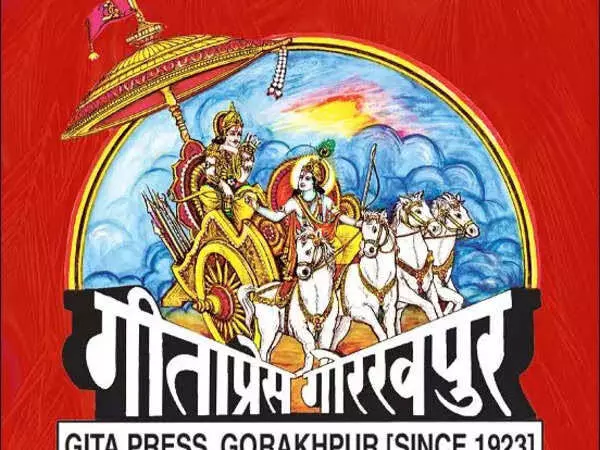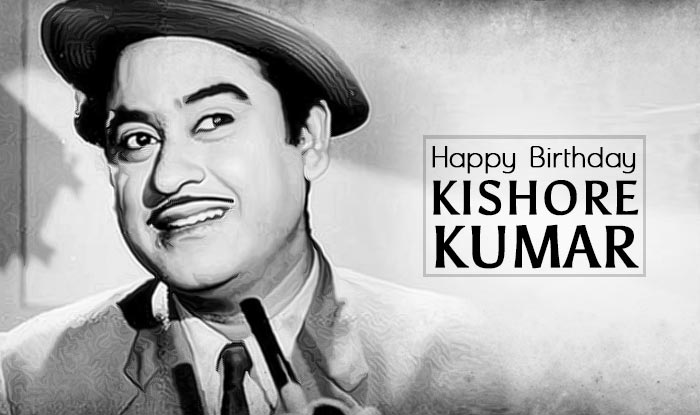
When Gandhi Award is awarded to Gita Press
text_fieldsGita Press, a religious publishing house in Gorakhpur, Uttar Pradesh, has been selected for the 2021 Gandhi Peace Prize. This award with a prize money of Rs.1 crore was instituted by the Central Government in 1995 on the occasion of the 125th birth anniversary of the Father of the Nation, Mahatma Gandhi, and is given to individuals and organizations who have tried to make transformations in the social, economic and political spheres through Gandhian values based on non-violence at the international level. Former recipients of the award include personalities such as South African freedom fighter Nelson Mandela, Archbishop Desmond Tutu, Bangabandhu Sheikh Mujibur Rahman and social activist Baba Amte, as well as organizations such as ISRO, Ramakrishna Mission, Bangladesh Grameen Bank and Sulabh International. Gita Press was selected for the award by a jury headed by Prime Minister Narendra Modi. Commending the contribution of Gita Press in advancing the Gandhian values of peace and social harmony, the Prime Minister declared that the Gandhi Peace Award is a recognition of the social service rendered by the institution which is celebrating its centenary this year. Meanwhile, the main opposition Congress came out against the announcement of the award with the party's General Secretary Jairam Ramesh calling the decision, taken by the jury headed by Modi, a "travesty" and likening it to awarding Hindutva ideologue VD Savarkar and Mahatma Gandhi's killer Nathuram Godse. The Congress leader pointed out the irony of awarding a peace award named after Gandhiji to the organization that paved the way for the Hindutva propaganda of the Hindu Mahasabha and the RSS in India and strengthened the divisive politics of the Sangh Parivar.
Giving awards to individuals favoured by those in power is not new. After the BJP came to power at the Centre in 2014, the RSS-affiliated Vivekananda Centre and the Ekal Abhiyan Trust have received the Gandhi Peace Prize. However, it was controversial that an award for peace efforts in Gandhi's name was given to a publishing house which, despite maintaining personally friendly relations with Gandhi, constantly clashed with the values he promoted and ran counter-propaganda. Started in 1923 by Jayadayal Goyandka, a Marwari businessman from West Bengal, along with Mahaveer Prasad Poddar of Gorakhpur, the Gita Press made the Bhagavad Gita and Ramcharitmanas available to the Hindu believers at a low cost. The aim of the Press was to spread caste-based Hindu religious principles, and in 1926 it became a propaganda tool of the right-wing Hindutvavadis through the magazine 'Kalyan'. Following the efforts of Hindu reformers such as Raja Ram Mohan Roy, the Gita Press was established in 1923 with the declaration that the traditional Hindu Sanatana dharma must not deteriorate. The Press was a part of the propaganda strategy of the Hindu Mahasabha, which had been founded two years earlier, and the RSS, which was formed two years later. In 1926, Kalyan magazine began publication with Poddar as the founding editor. The magazine opposed the reform initiatives of Mahatma Gandhi and others on issues including the four-tiered caste system of Chaturvarnyam, sati, child marriage, untouchability, temple entry of the lower classes and widow marriage. Even when Jawaharlal Nehru kept the Gita Press and Kalyan magazine at bay, a section of Congress leaders including Gandhi remained in touch with Kalyan, business leader Jay Dayal Goyandka and Poddar. None of them, however, convinced the Gita Press to cease its right-wing Hindutva extremist propaganda or its instilling of anti-Muslim hatred. Born in the 1920s when communal riots were raging, 'Kalyan' called upon Hindus to show their collective strength without turning into non-violence cowardice. In 1939, when riots broke out in Gorakhpur, the employees of Gita Press were also arrested. Kalyan had a significant role in kindling Hindu-Muslim communalism during the conflicts from 1946 until the stage of India's partition, according to Akshay Mukul, the eminent historian on Gita Press. Gandhi's efforts to bring together Muslims in Noakhali for reconciliation could not be tolerated by the Gita Press representatives. They demanded that the new country should be seen as Hindustan upon partition and wrote a twelve-point action plan for the Hindu majority independent India.
In 1949, when the Ram Lalla idol was installed in the Babri Masjid, Gita Press participated in the campaign of the Ram Janmabhoomi movement. After the assassination of Nathuram Godse Gandhi on January 30, 1948, Poddar and Goyandka were among the group of around a quarter lakh members of the Hindu Mahasabha and RSS who were arrested. When their case was brought to his attention, their friend and patron businessman GD Birla responded that both of them were propagating Satanic Dharma and not Sanatan Dharma. Gita Press has become a household name in the homes of academics in the Hindi Belt after selling Rs 20 crores worth of religious books and having two lakh subscribers to its magazine "Kalyan", and one can only imagine the influence Gita Press exerted in the propagation of Hindutva beliefs. In the 2014 elections, Kalyan had campaigned strongly among the Hindu groups for whom to vote. Critics have pointed out the irony in awarding Gita Press the Gandhi Peace Prize which promotes Gandhian values. The announcement of the award confirms Akshay Mukul's 2015 prediction that an increased right-wing polarisation of Indian politics could result in a second revival of the Gita Press. Earlier, there was a proposal to give Bharat Ratna to Hanuman Prasad Poddar. That being so, it will not be a surprise if what Congress has just said in jest comes true.
























